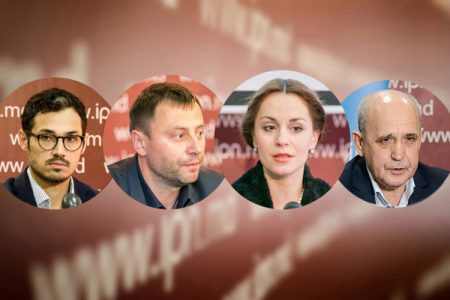The state of affairs in Moldova at present is very complicated and should be also analyzed from the angle of the complex context of the international relations, relations with the strategic partners and in contrast to the state of affairs in a series of states with a status similar to that of the Republic of Moldova. The quality of the Moldova-EU relations based on comparative studies was discussed in IPN’s public debate “EU’s calculations in Ukraine, Georgia and Moldova – navigating between political crisis, reforms and influence of Russia”.
Natalia Stercul, programs coordinator at the Foreign Policy Association, said the visit paid by the President of the European Council Charles Michel to Ukraine, Georgia and Moldova was an important signal as regards the readiness to make progress in the political association, economic integration and close rapprochement between the three Eastern Partnership countries (Moldova, Ukraine, Georgia). “At the same time, it should be noted that the EU has a differentiated approach to Georgia, Ukraine and Moldova compared with the other three countries of the Eastern Partnership, where the EU’s agenda is not very successful. If it manages to consolidate the idea of this “trio”, especially as regards the implementation of reforms, the European integration could become more attractive also to Belarus, Armenia, and Azerbaijan,” stated the expert.
“The EU’s attitude to the three countries was also evident through the statements made by the European official and the order in which he visited the countries. In Moldova, the most important is the emphasis placed on the necessity of ensuring the rule of law and the fact that the European Union supports the democratic reforms and will help and will cooperate with the Republic of Moldova if all its actions are based on the rule of law and the observance of the law. At the same time, the support for incumbent President Maia Sandu could be seen in the EU’s approval of her efforts in the fight against corruption, implementation of the reforms about which she speaks. There was no emphasis as regards the Transnistrian region. The greatest stress was laid on the existence of the political crisis generated by the contradictions between the President and Parliament and the wish to reach constructive decisions for triggering snap parliamentary elections.”
Full article on IPN website: https://bit.ly/3cAt1O1







